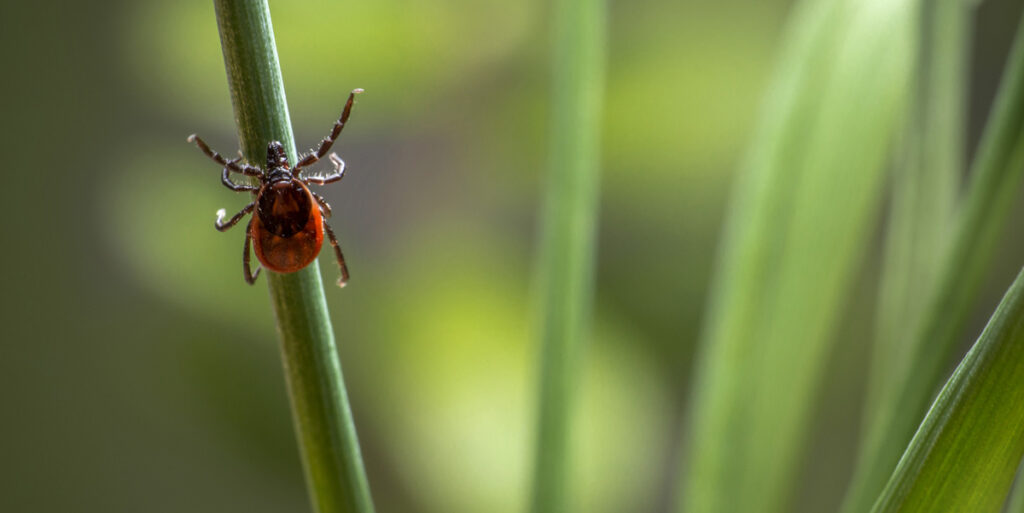As a healthcare provider specialising in travel health, we wanted to respond to the recent news reports regarding the detection and spread of the Tick-Borne Encephalitis Virus (TBEV) in several parts of the UK and provide further information to patients.

Tick-Borne Encephalitis (TBE) is a virus carried by ticks and is common in many parts of the world, including Europe, Siberia and the Far East. The virus is transmitted through the bite of an infected tick and causes disease of varying severity from completely asymptomatic infection, to mild illness, to severe infection within the central nervous system such as meningitis and/or encephalitis (inflammation of the brain). Symptoms of the virus are similar to other illnesses and include flu-like symptoms, high fever, headache, neck stiffness, confusion and reduced consciousness.
The UK Health Security Agency (UKHSA) has recently published details on 3 cases of probable or confirmed tick-borne encephalitis acquired in the UK since 2019, with the most recent case in Yorkshire in 2022. Since then, the virus has also been detected in parts of Hampshire, Dorset, Norfolk and Suffolk but may also be present in other areas as the tick species that carries the virus is now widespread in the country.
Health officials are reassuring the public that the risk of TBE transmission in the UK remains low, however, as the virus is unlikely to disappear, a robust surveillance programme is underway and everyone is being reminded to remain vigilant in relation to tick bites.
At HHCC, we want to do everything we can to keep our patients safe and are encouraging everyone to take precautions to protect themselves from tick bites when at home and abroad.
It is advisable to keep ankles and legs covered when visiting areas such as forests, fields with long grass, woodland, moorlands and parks. The use of appropriate insect repellents, checking clothes and skin regularly for ticks is also important, particularly after visiting higher risk areas. Additionally, please be aware of the signs and symptoms of the virus and seek medical advice should you or anyone you know become unwell after visiting higher risk areas or following a tick bite.
For those who regularly undertake higher risk activities such as rambling, camping, hiking or those who work outdoors in these areas, vaccination against the virus should be considered. Vaccination is also strongly recommended for those intending to travel to high risk areas abroad including parts of Europe, Russia, China and Japan.
We can offer vaccination against Tick-Borne Encephalitis (TBE) to both adults and children. This is an inactivated vaccine, with a full primary course consisting of 3 doses. A booster dose is recommended 3 years after a primary course.
Please contact our reception team to book an appointment on 020 8861 1221
Please see the link below for further information:
https://www.gov.uk/government/news/tick-borne-encephalitis-detection-in-england


